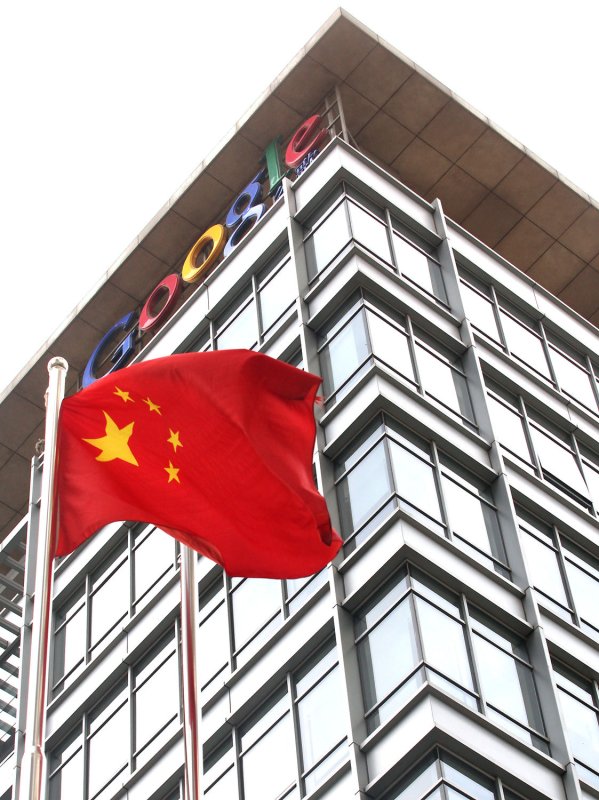1 of 2 | Google China's headquarters remains open in Beijing on June 8, 2011. China's official Communist Party newspaper issued a caustic response to Google's charge that Chinese hackers had taken aim at influential users of its Gmail service. Google said last week that hundreds of users of Gmail had been the targets of clandestine attacks apparently originating in China that were aimed at stealing passwords and monitoring email. UPI/Stephen Shaver |
License Photo
LONDON, Nov. 3 (UPI) -- Governments shouldn't censor opinions or restrict the flow of information on the Internet in the name of security, British Foreign Secretary William Hague says.
Hague, speaking at the London Conference on Cyberspace, said that while cybersecurity threats loom large for all nations, government censoring what is posted on the Internet isn't the way to deal with it.
"We reject the view that government suppression of the Internet, phone networks and social media at times of unrest is acceptable," he said.
Instead, the chief British diplomat outlined a set of seven principles he asserted could used to reach broad international agreements to help fight burgeoning cybercrime and espionage without trampling on freedom of expression or handing too much power to individual governments.
Hague told at a reception for delegates at the two-day conference -- in which representatives of 60 countries gathered to discuss cybersecurity – that it's vital the Internet remain a bastion of free speech, the Financial Times reported.
"It is essential that the debate is as inclusive as possible, everyone has an interest in these issues and no one person or body controls the Internet," he said.
Among the principles Hague put forward included "the need for governments to act proportionately" and in line with international law.
The foreign minister also called for protection of freedom of expression; respect for privacy and copyright; and for internationally coordinated action against criminals acting online, The Wall Street Journal reported.
Britain's call for less government censorship of the Internet came only a month after China and Russia, which Britain and the United States accuse of censoring political speech on the Internet, proposed standards in which policing cyberspace would be left to each country.
They had only a small presence at the cyberspace conference after issuing their own visions of Internet governance last month, joined by Tajikistan and Uzbekistan.
In a letter sent to the U.N. Secretary-General Ban Ki-moon, the four advocated a cyberspace code of conduct centered on the rights of individual governments to control the dissemination of information that "undermines other countries' political, economic and social stability, as well as their spiritual and cultural environment," the Journal reported.
But U.S. Vice President Joe Biden, appearing via teleconference at Tuesday's event, said that kind of government control over the Internet isn't necessary or desirable.
"This in our view would lead to a fragmented Internet," he said.
Internet free speech advocacy groups also put in appearances at the London conference, eager to condemn government clampdowns on cyberspace freedoms, including such moves made by Western governments.
John Kampfner, chief executive of the Index on Censorship group, noted the British government has discussed restrictions on the use of social media in the wake of this year's London riots.
"It's very easy to defend this case of black and white human rights against dictatorships around the world, but as soon as our own Western style stability of the state is called into question then freedom of expression is expendable," Kampfner told attendees, Deutsche-Welle reported.
"There should be one rule for all, including Western governments."





